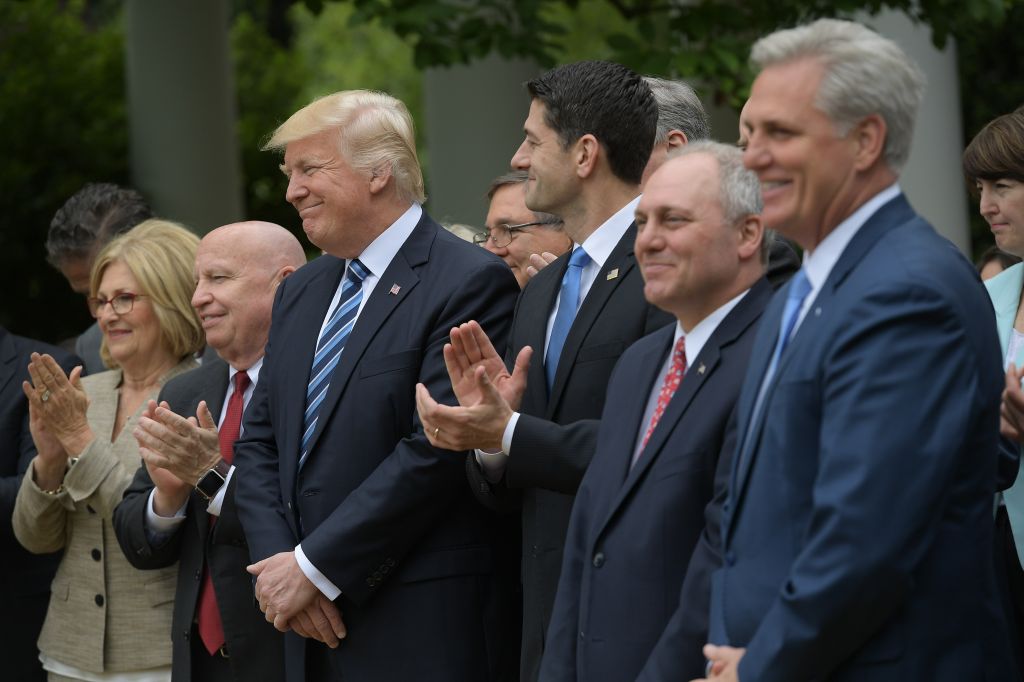
Source: MANDEL NGAN / Getty
According to the New York Times, The Amreican Health Care Act, which narrowly won passage in the House Thursday, could transform the nation’s health insurance system and create a new slate of winners and losers. The Bill has to be approved through the Senate before it becomes law. Let’s take a look at who the current bill will benefit most.
Winners:
High-income earners: The bill eliminates two taxes on individuals earning more than $200,00 or couples earning more than $250,000.
Upper-middle-class people without pre-existing health conditions: The Affordable Care Act cut off subsidies to help people buy their insurance at an income of around $48,000 for a single person. The American Health Care Act would let people get govenment subsidies much higher up the income scale, up to about $150,000.
Young, middle class people without pre-existing health conditions: The bill would change how insurance companies price their products in a way that would lower prices for young customers.
People who wish to go without insurance: The bill would eliminate the individual mandate, which charges a tax penalty to Americans who can afford insurance but do not obtain it.
People who want less comprehensive health coverage: The bill allows insurers to offer health plans with higher deductables and co-payments, a change likely to lower premiums.
Large employers: The bill eliminates Obamacare’s employer mandate, which requires large employers to offer affordable coverage to their workers. If the bill becomes law, companies that do not wish to cover their workers will face NO penalty.
Medical device companies, indoor tanning companies and a few other medical industries: The bill rolls back taxes on devices, tanning, perscription drugs and health insurance products.
Losers:
Poor People: Many states would be expected to roll back their expansions of the Medicaid program to cover childless adults without disabilities. The bill would also substantially reduce subsidies available for Americans just over the poverty line, the group that benefited most from Obamacare’s subsidies. Poor Americans are much more likely to becomes uninsured under the bill, according to the Congressional Budget Office, and those who retained coverage would pay much more of their limited incomes on premiums and deductibles.
Older Americans, in most states: The same factors that make the bill better for many young Americans make it worse for those who are older.
People with pre-existing health conditions, particularly in some states: The bill allows states to waive rules on minimum benefit standards and rules that prohibit insurance companies from charging higher prices to customers with a history of serious illness, or even minor diseases.
State governments: The bill cuts back substantially on federal funding for state Medicaid programs, while offering states only limited new flexibility in how they manage them.
Hospitals: Assessing an earlier version of the bill, the Congressional Budget Office estimated that some 24 million fewer people would have health insurance in a decade.
Planned Parenthood: The bill would prevent Planned Parenthood from receiving any federal money for one year, a major hit for a health care provider that relies substantially on payments from Medicaid and the Title X family planning grant to provide contraception, cancer screenings and other women’s health services.
See the full details here: https://www.nytimes.com/2017/05/04/upshot/who-wins-and-who-loses-in-the-latest-gop-health-care-bill.html















